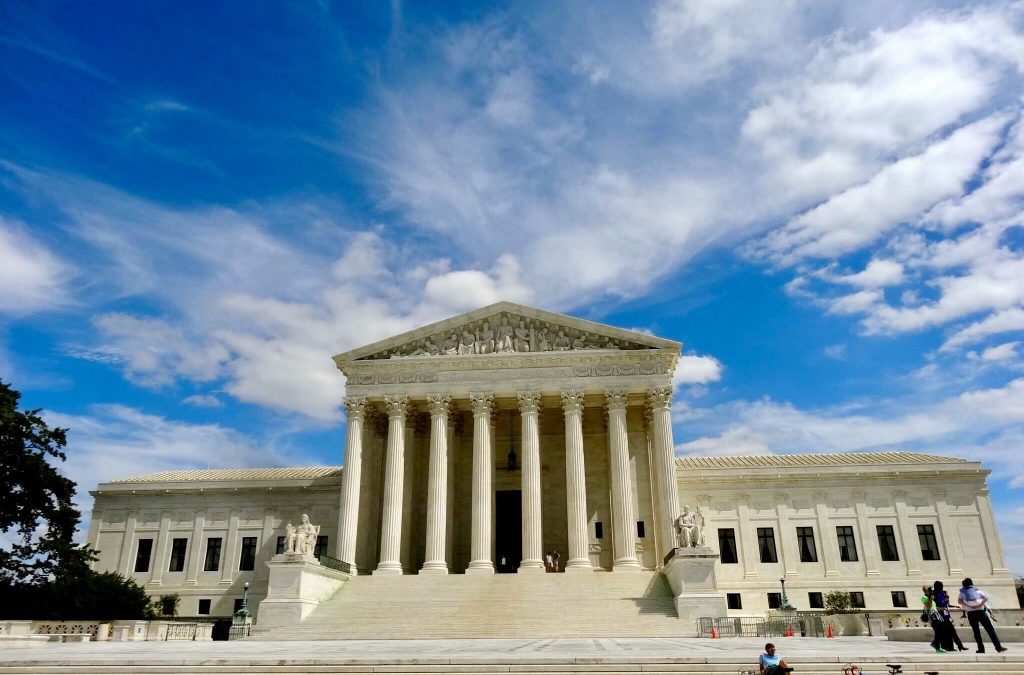Citizen-initiated proposals aimed at increasing the minimum wage and expanding paid sick leave
In a significant ruling, the Michigan Supreme Court has reinstated the original minimum wage and paid sick leave laws that were initially gutted by the legislature in 2018. This decision reverses the amendments made by the legislature, which had adopted and then quickly weakened the voter-initiated proposals, effectively bypassing the intent of the voters.
Background
In 2018, two citizen-initiated proposals aimed at increasing the minimum wage and expanding paid sick leave were presented.
The Michigan Legislature adopted these initiatives to prevent them from going to a public vote, then promptly amended them to make them more business-friendly. This “adopt and amend” strategy reduced the scope and impact of the original proposals.
For example, the minimum wage was set to increase more gradually, and the paid sick leave law was adjusted to exempt more businesses from providing benefits.
The Court’s Ruling
The Michigan Court of Claims, with Judge Douglas Shapiro presiding, ruled that this legislative maneuver violated the state constitution. Shapiro’s opinion emphasized that once the legislature adopts an initiative, it cannot amend it within the same session.
This decision reinstates the original 2018 proposals, which include raising the minimum wage to $12 per hour and extending paid sick leave benefits to many more employees than the amended laws allowed.
The court found that the legislature’s actions undermined the will of the people, who had supported the more generous terms of the original initiatives. The ruling also highlighted the constitutional principle that initiatives should be protected from legislative tampering once they are adopted.
Implications for Workers and Employers
The restoration of these laws is a major victory for worker rights groups and unions, who argue that the higher minimum wage and expanded sick leave are essential for providing fair compensation and benefits to workers.
For instance, the reinstated minimum wage law also includes provisions to eliminate the lower tipped wage by 2024, ensuring all workers receive at least $12 per hour.
The paid sick leave law now requires businesses, including those with fewer than 50 employees, to offer up to 72 hours of paid sick leave annually.
This decision is seen as a move towards economic justice, addressing issues of wage inequality and providing greater job security and benefits for low-income workers. Supporters argue that these changes are necessary to meet the rising cost of living and provide a fair wage for all workers.
Business Community’s Response
The business community, however, has expressed significant concerns about the impact of these changes. Many business leaders argue that the restored laws will place a substantial financial burden on employers, particularly small businesses already struggling with the effects of the COVID-19 pandemic and ongoing economic challenges. They warn that the increased labor costs could lead to higher prices for consumers, reduced hiring, and even closures of small businesses.
The Michigan Restaurant & Lodging Association, for example, fears that the immediate implementation of these laws could create chaos in the hospitality industry, which is heavily reliant on the lower tipped wage model. Business groups are calling for a delay in implementing the changes to allow time for adjustment and are expected to appeal the ruling.
Next Steps
The Michigan Supreme Court’s decision marks a pivotal moment in the state’s labor policy, reaffirming the constitutional protections for voter-initiated laws. While the ruling is a clear win for worker advocates, the legal and political battles are likely to continue as business groups push back and seek ways to mitigate the impact on employers.
The state’s regulatory bodies, including the Michigan Department of Labor and Economic Opportunity, are now tasked with ensuring compliance with the restored laws. They will play a crucial role in determining how these laws are implemented and enforced, potentially shaping the future landscape of labor rights in Michigan.
This ruling underscores the ongoing tension between protecting worker rights and addressing the concerns of the business community, highlighting the complexities of labor law and economic policy in Michigan.
Conclusion
The Michigan Supreme Court’s decision to restore the original minimum wage and paid sick leave laws represents a significant shift in the state’s labor policy, aimed at providing greater protections and benefits for workers.
While celebrated by worker rights groups, the ruling poses challenges for businesses, setting the stage for further legal and political debates.
As the state moves forward with implementing these changes, the balance between fair labor practices and economic viability will remain a central issue.
Read the opinion here:
Legal Counsel and Your Rights
When facing legal challenges, particularly in criminal cases, it is advisable to seek legal counsel immediately.
An experienced attorney can provide guidance on how to navigate interactions with law enforcement while safeguarding your constitutional rights.
Since 1993 our expert legal defense in navigating criminal law matters and protecting your constitutional rights are what we eat for breakfast everyday.
Contact Komorn Law PLLC if you’re ready to fight and win.
Research us and then call us.
More Rights You Should Know
No Results Found
The page you requested could not be found. Try refining your search, or use the navigation above to locate the post.

Listen Live to the US Supreme Court
Listen live to arguments in the Supreme Court. On Monday, the Supreme Court is set to hear arguments over the phone for the first time ever due to the coronavirus pandemic; they'll hear 10 cases remotely from now until May 13. But that's not the only history being...
Other Articles
When Cannabis Businesses Are No Longer Subject to IRS 280E
IRS 280E and Cannabis BusinessesWhat is IRS Section 280E? Section 280E of the Internal Revenue Code restricts businesses from deducting typical business expenses from their gross income related to the distribution of Schedule I or II substances per the Controlled...
I am going to Canada – Can I bring my cannabis?
Borders and Cannabis and MoneyFerengi Rule of Acquisition #41. Profit is its own reward.If you bring your own cannabis to Canada. How does the Canadian government profit? They don't so they will punish you if you get caught. It's simple. It's about the money. That is...
Squatters in Michigan
SquattersSquatting, in one definition is the unauthorized occupation of a property, can be a frustrating ordeal for property owners in Michigan. Understanding the relevant laws and procedures is crucial for regaining possession of your property.Squatting vs. Adverse...
Vehicle Forfeiture in Canada – The Process of Taking
Thank You... and have a nice day eh!Disclaimer: We are not Attorneys in Canada. This is an article of information obtained from various sources and presented here. We can only assume they are accurate. If you ever find a reason to go to Canada and need a lawyer...we...
Boating in Michigan on Alcohol and Drugs – It’s Illegal
If it's got a motor, it's a BUIWe got lakes, we got boats, we got alcohol, we got cannabis all the fun you can possibly find on a holiday weekend in the summer. Just don't combine them all or you'll be calling us or your cousin Vinny. Operating a Boat Under the...
Alcohol, Drugs, Kayaking – It could be a problem
Can I drink alcohol and smoke cannabis if I'm canoeing or kayaking or tubing or paddleboarding or just floating around?While Michigan law doesn't explicitly forbid consuming alcohol on non-motorized vessels like canoes or kayaks, it's strongly discouraged for safety...
Michigan Workers Right to Protest – Can They Force a Change in Business Strategy?
Michigan Workers and the Right to Protest: Can They Force a Change in Business Strategy?The ever-evolving economic landscape can create friction between Michigan workers and their employers. Workers may find themselves at odds with company strategies or investments,...
Carjacking is a Federal Offense
Carjacking is a Federal OffenseCarjacking, the act of forcibly stealing an occupied vehicle, has long been a concern for public safety. It was a local and state issue until a series of violent incidents in the early 1990s that carjacking became a federal...

















